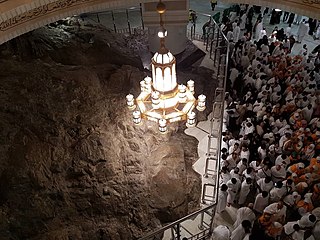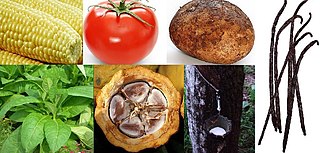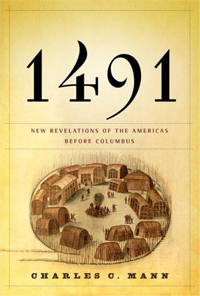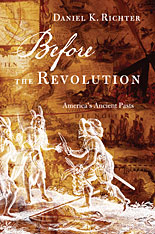
Cultural anthropology is a branch of anthropology focused on the study of cultural variation among humans. It is in contrast to social anthropology, which perceives cultural variation as a subset of a posited anthropological constant. The portmanteau term sociocultural anthropology includes both cultural and social anthropology traditions.

In political science, a revolution is a fundamental and relatively sudden change in political power and political organization which occurs when the population revolts against the government, typically due to perceived oppression or political incompetence.

Sociology of religion is the study of the beliefs, practices and organizational forms of religion using the tools and methods of the discipline of sociology. This objective investigation may include the use both of quantitative methods and of qualitative approaches.

The Arawak are a group of indigenous peoples of South America and of the Caribbean. Specifically, the term "Arawak" has been applied at various times to the Lokono of South America and the Taíno, who historically lived in the Greater Antilles and northern Lesser Antilles in the Caribbean. All these groups spoke related Arawakan languages.

In the history of the Americas, the pre-Columbian era spans from the original settlement of North and South America in the Upper Paleolithic period through European colonization, which began with Christopher Columbus's voyage of 1492. Usually the era covers the history of indigenous American cultures until significant influence by Europeans. This may have occurred decades or even centuries after Columbus for certain cultures.

The Commercial Revolution consisted of the creation of a European economy based on trade, which began in the 11th century and lasted until it was succeeded by the Industrial Revolution in the mid-18th century. Beginning with the Crusades, Europeans rediscovered spices, silks, and other commodities rare in Europe. This development created a new desire for trade, and trade expanded in the second half of the Middle Ages. Newly forming European states, through voyages of discovery, were looking for alternative trade routes in the 15th and 16th centuries, which allowed the European powers to build vast, new international trade networks. Nations also sought new sources of wealth and practiced mercantilism and colonialism. The Commercial Revolution is marked by an increase in general commerce, and in the growth of financial services such as banking, insurance and investing.
Eurocentrism is a worldview that is centred on Western civilisation or a biased view that favours it over non-Western civilisations. The exact scope of Eurocentrism varies from the entire Western world to just the continent of Europe or even more narrowly, to Western Europe. When the term is applied historically, it may be used in reference to an apologetic stance towards European colonialism and other forms of imperialism.

Ethnobotany is the study of a region's plants and their practical uses through the traditional knowledge of a local culture and people. An ethnobotanist thus strives to document the local customs involving the practical uses of local flora for many aspects of life, such as plants as medicines, foods, intoxicants and clothing. Richard Evans Schultes, often referred to as the "father of ethnobotany", explained the discipline in this way:
Ethnobotany simply means ... investigating plants used by societies in various parts of the world.

The Columbian exchange, also known as the Columbian interchange, was the widespread transfer of plants, animals, precious metals, commodities, culture, human populations, technology, diseases, and ideas between the New World in the Western Hemisphere, and the Old World (Afro-Eurasia) in the Eastern Hemisphere, in the late 15th and following centuries. It is named after the Italian explorer Christopher Columbus and is related to the European colonization and global trade following his 1492 voyage. Some of the exchanges were purposeful; some were accidental or unintended. Communicable diseases of Old World origin resulted in an 80 to 95 percent reduction in the number of Indigenous peoples of the Americas from the 15th century onwards, most severely in the Caribbean. The cultures of both hemispheres were significantly impacted by the migration of people from the Old World to the New. African slaves and European colonists replaced the Indigenous populations across the Americas. The number of Africans coming to the New World was far greater than the number of Europeans coming to the New World in the first three centuries after Columbus.
History of anthropology in this article refers primarily to the 18th- and 19th-century precursors of modern anthropology. The term anthropology itself, innovated as a New Latin scientific word during the Renaissance, has always meant "the study of man". The topics to be included and the terminology have varied historically. At present they are more elaborate than they were during the development of anthropology. For a presentation of modern social and cultural anthropology as they have developed in Britain, France, and North America since approximately 1900, see the relevant sections under Anthropology.
Native American studies is an interdisciplinary academic field that examines the history, culture, politics, issues, spiritual, sociology and contemporary experience of Native peoples in North America, or, taking a hemispheric approach, the Americas. Increasingly, debate has focused on the differences rather than the similarities between other Ethnic studies disciplines such as African American studies, Asian American Studies, and Latino/a Studies.

1491: New Revelations of the Americas Before Columbus is a 2005 non-fiction book by American author and science writer Charles C. Mann about the pre-Columbian Americas. It was the 2006 winner of the National Academies Communication Award for best creative work that helps the public understanding of topics in science, engineering or medicine.
Europe and the People Without History is a book by anthropologist Eric Wolf. First published in 1982, it focuses on the expansion of European societies in the modern era. "Europe and the people without history" is history written on a global scale, tracing the connections between communities, regions, peoples and nations that are usually treated as discrete subjects.
Michael T. Taussig is an Australian anthropologist and professor at Columbia University. Although he has published on medical anthropology, he is best known for his engagement with Marx's idea of commodity fetishism, especially in terms of the work of Walter Benjamin.

Jack McIver Weatherford is the former DeWitt Wallace Professor of anthropology at Macalester College in Minnesota. He is best known for his 2004 book, Genghis Khan and the Making of the Modern World. In 2006, he was awarded the Order of the Polar Star, Mongolia’s highest national honor for foreigners.

Two-Spirit is a modern, pan-Indian, umbrella term used by some Indigenous North Americans to describe Native people in their communities who fulfill a traditional third-gender ceremonial and social role in their cultures.
Ethnoscience has been defined as an attempt "to reconstitute what serves as science for others, their practices of looking after themselves and their bodies, their botanical knowledge, but also their forms of classification, of making connections, etc.".
Political Economy in anthropology is the application of the theories and methods of historical materialism to the traditional concerns of anthropology, including, but not limited to, non-capitalist societies. Political Economy introduced questions of history and colonialism to ahistorical anthropological theories of social structure and culture. Most anthropologists moved away from modes of production analysis typical of structural Marxism, and focused instead on the complex historical relations of class, culture and hegemony in regions undergoing complex colonial and capitalist transitions in the emerging world system.

Before the Revolution: America's Ancient Pasts is a nonfiction book-length scholarly history written by Daniel K. Richter and published by Belknap Press in May 2013. It covers the stages of North America's deep historical roots well before the American Revolution, theorizing that these stages shaped recent history and the present. The book is divided into six major sections: "Progenitors," "Conquistadors," "Traders," "Planters," "Imperialists," and "Atlanteans".











